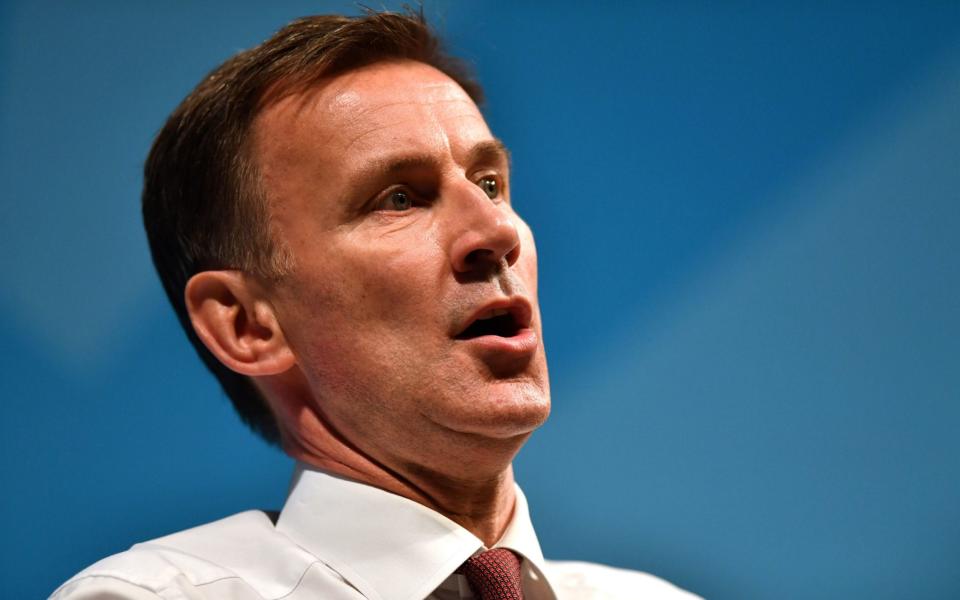Jeremy Hunt says the Government initially saw controlling spread of Covid as a 'futile exercise'


Jeremy Hunt has said the Government initially viewed controlling the spread of coronavirus as a "futile exercise".
The former Health Secretary, who has been a consistent critic of the official strategy, said that because Whitehall was geared up to fight an influenza pandemic, ministers never believed they could keep prevalence of the disease below 50 per cent.
Instead, The Government assumed that a level of "herd immunity" would be reached naturally, he said.
"I don't think we are aiming for herd immunity but because our mindset was around tackling flu pandemics, there was a sense that basically it would be impossible to hold the prevalence rate of this disease below 50 per cent of the population and ultimately 60 per cent catching it was an inevitability," Mr Hunt told a meeting of the Independent Sage group of scientists, chaired by the BMJ.
He added: "So we had that mindset that this was a futile exercise. That is why we took so long to really embrace test and trace, because ultimately we thought once community transmission has got beyond a certain point, there's just no point."
England's longest serving Health Secretary, Mr Hunt contrasted the UK's response with that of Asian countries, who based their approaches on the more relevant Sars outbreak of 2003-4, employing aggressive test and trace.
Ministers have always denied the suggestion that they ever contemplated a policy of herd immunity - whereby a sufficient level of immunity from past infection or vaccination means the virus does not naturally spread.
Questions started after the concept was discussed by Sir Patrick Vallance, chief scientific adviser, at a press conference early in the crisis.
Mr Hunt also called for regular mass testing of high-risk groups to stamp out coronavirus before the winter.
These include healthcare workers, taxi drivers and people working in airports.
"If we want to catch the asymptomatic carriers we have to do things which we are not currently planning to do, because we're only feeding between a quarter and a third of the people who get infected into the test and trace programme," he said.

